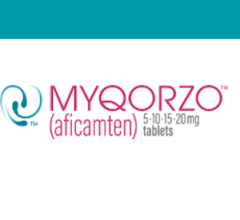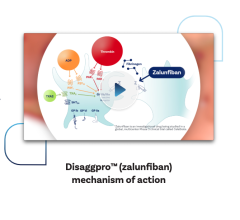
April 5, 2013 — A study led by researchers at the University of North Carolina indicates a newly approved blood thinner blocks a key component of the human blood clotting system and may increase the risk and severity of certain viral infections, including flu and myocarditis.
Recently, the Food and Drug Administration (FDA) approved the use of the blood-thinner dabigatran etexilate (Pradaxa) for atrial fibrillation patients. The drug inhibits thrombin, the body’s central coagulation activator of the blood clotting system.
In blocking thrombin activity, the drug disturbs the protease cascade of molecular events that normally occurs in coagulation. While clot formation is reduced, the new study shows it may also cause an unintended consequence.
“Our findings show that blocking thrombin reduces the innate immune response to viral infection,” said Nigel Mackman, Ph.D., the study’s senior author and John C. Parker Distinguished Professor of Medicine in the division of hematology and director of the UNC McAllister Heart Institute. “The use of the new generation of blood thinners might increase the risk and severity of flu and myocarditis.”
A report of the research appears in the March 2013 issue of The Journal of Clinical Investigation.
Mackman points out that viral infections such as dengue fever trigger activation of the coagulation system, but it was considered a bad thing. He says studies on bacterial infections have found that the last product of the “clotting cascade” (the process that occurs in blood clot formation) – fibrin – helps activate immune cell macrophages that boosts the immune system.
“But it seems that the antiviral mechanism of the clotting system is not via fibrin but rather via thrombin; namely, its activation of protease activated receptor proteins such as PAR-1,” says Mackman. “The new study was aimed at finding out if PAR-1 plays any role in virus infections, a question of importance to the use of Pradaxa and the development of antithrombotic drugs that target PAR-1 on platelets.”
Mackman and colleagues used mice in which the PAR-1 gene is deleted and subjected then to infection with a virus that causes myocarditis. They found that loss of PAR-1 mediated signaling after infection with the cardiotrophic virus resulted in increased viral buildup in the heart, cardiac injury and, later, increased impairment of heart function.
The absence of PAR-1 signaling was also associated with a slower response to the virus of the innate immune soon after viral infection. The innate immune system provides early defense against disease causing organisms. The defense is almost immediate.
The researchers treated normal mice with dabigatran etexilate. They showed that thrombin inhibition increased cardiac virus load and cardiac injury after viral infection in a similar manner to a deficiency of PAR-1. In addition, they infected the PAR-1 deficient mice with influenza A and found that PAR-1 signaling was important in controlling the virus load in the lung in the early phase after infection. These results suggest that thrombin and PAR-1 mediate important early antiviral signals after infection.
“Pradaxa inhibits clot formation by reducing fibrin deposition and platelet aggregation.” said Mackman. “Importantly, Pradaxa might not only facilitate significant lifesaving effects in reducing cardiac death but may also interfere with other processes in the body.”
For more information: www.jci.org


 January 28, 2026
January 28, 2026 









